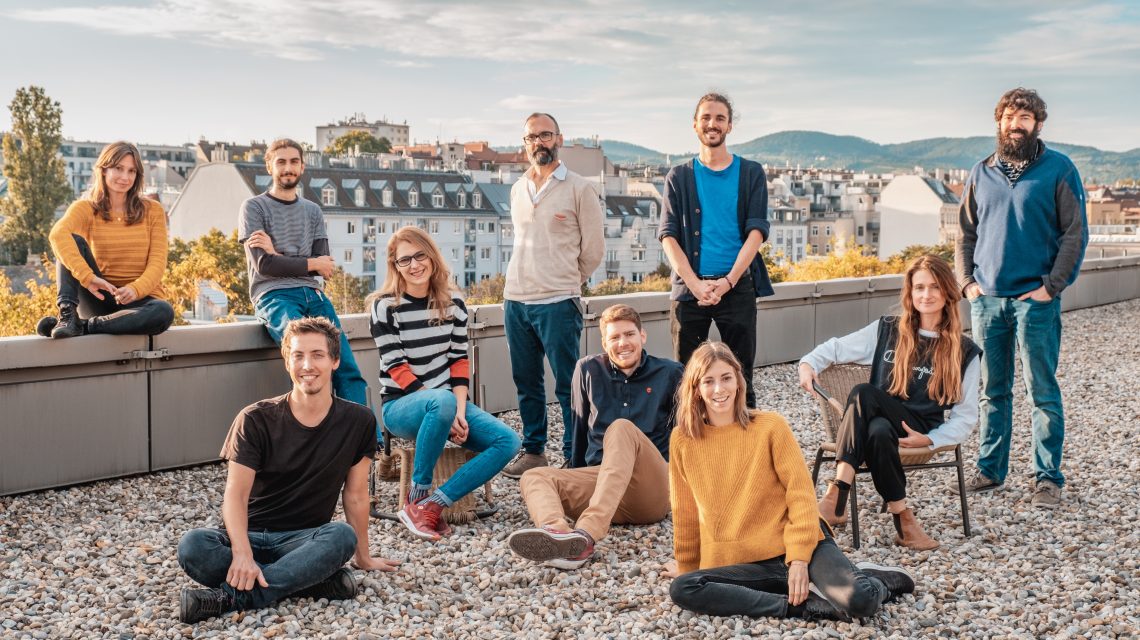Life science research is energy-intensive and generates a large amount of plastic waste, and yet, there are hardly any initiatives to reduce the ecological footprint in Austrian laboratories. To meet this need, a group of students and postdocs started the project Green Labs Austria last year at the University of Vienna. Since then, a non-profit association has been founded and the website greenlabsaustria.at has been launched. The initiative’s purpose soon became clear: Green Labs Austria wants to transform the day-to-day lab work of diverse life science institutions towards sustainable research in the context of the UN 2030 Agenda for Sustainable Development1. “We see ourselves as a platform for discussing lab resource consumption and exchanging ideas on how to minimize it. Environmental awareness must become an integral part of laboratory work. In the best case, the exchange happens quickly and directly between researchers,” Philipp Weber, a founding member says. This makes Green Labs Austria a bottom-up initiative that aims to connect labs regardless of their institutional affiliation.
All seven founding members currently work on various research areas in the labs of the Department of Functional and Evolutionary Ecology2 at the University of Vienna. Consequently, they are constantly confronted with numerous energy-devouring equipment and, above all, a pile of single-use plastics. “At home, many researchers try to live more environmentally conscious, but at work hardly any time is spent on improving the use of resources,” Philipp Weber remarks. Due to the user-friendliness of plastics, many plastic products, such as disposable pipettes, are readily used, only to end up in the residual waste. As scientists, the Green Lab Austria members have experienced that “seeing is believing”, which is why they display photos of the amount of plastic waste produced during one week of lab work on their website.
The initiative also captures the types of plastic products routinely used in the lab, so that their use can be reduced in a targeted manner. “Refuse, reduce, reuse, recycle” remains the order of procedure of lab waste management: the plastic waste produced in the laboratory should be avoided first and foremost by considering alternatives, and only then sorted for recycling3.
Knowing the exact fate of the recyclable plastic waste is important to Green Labs Austria. First inquiries, however, have revealed that it is difficult to retrace how much of the plastic waste in the municipal recycling container is actually recycled and, moreover, by whom, where and how.
An easier undertaking, on the other hand, is to save energy in labs by raising the temperature of the widely used ultra-low freezers from -80°C to -70°C. This difference of just 10°C can reduce energy consumption and associated costs by 30% and extends the freezer’s lifetime, while studies show that the vast majority of frozen samples are uncompromised. This simple measure can be a first step to tackle the enormous energy consumption in research facilities4.
Even the research topic or study subject can be changed to align with climate change measures. As researchers studying exotic organisms and their environment, some of our members used to travel thousands of kilometers producing an enormous CO2 footprint. Shifting to more accessible organisms or finding appropriate sampling sites in the vicinity of the institute, even if it meant a small revision of research topic, was a choice they felt compelled to make.
Green Labs Austria wants to gain many new members in the form of research groups, students, scientists, lab technicians and other interested parties from institutions all over Austria. The only criterion for admission is simply the commitment to sustainable research. There is a lot to do. Hence the call to all life scientists and life-loving people: let’s transform our research environment together!
1 https://www.un.org/sustainabledevelopment/development-agenda/
2 https://ecology.univie.ac.at/
3 https://greenlabsaustria.at/2020/02/05/freezer-experiments/
4 https://greenlabsaustria.at/2020/06/05/freezer-experiments-2/


You must be logged in to post a comment.